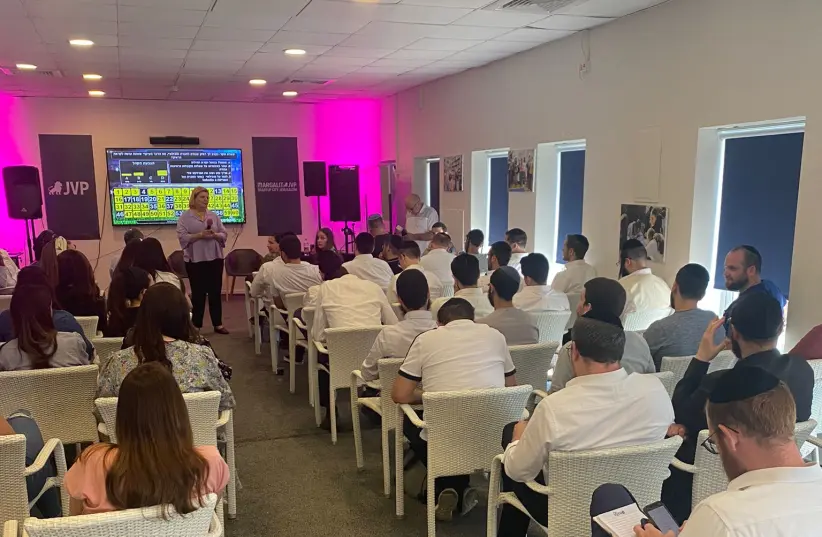The soon-to-be graduates of the program’s first class contribute to a growing push to hire from Israel’s periphery.

While growing concern mounts in the hi-tech industry regarding the increasing shortage of traditional hirees, others are pushing to increase the hiring potential of peripheral groups such as Israel’s ultra-Orthodox and Arab communities, as well as women from all demographics.
At the culmination of one such effort, Economy Minister Orna Barbibai and representatives from established tech companies such as Meta and Nvidia gathered at the JVP complex in Jerusalem on July 12 to visit the first class of Heznikim, a joint national program of the Yedidut Toronto Foundation and the Economy Ministry.
The program was founded in order to increase the proportion of ultra-Orthodox men and women holding tech-related academic degrees in order to integrate them into the hi-tech ecosystem – and soon, over 60 ultra-Orthodox students finishing the course will be prepared to do so.
At the meeting, data on the achievements of the first-year graduates was presented, detailing a lower than average dropout rate (15% as opposed to 23%), average grades of 88, and 31% of students securing jobs in the field, even before graduating.
“In light of the shortage of tens of thousands of quality employees in the hi-tech field, the program has proven its viability,”
Natan Kandler, Vice President of the Yedidut Toronto Foundation
Speaking at the event, Barbibai urged the government to “act urgently and decisively to ensure that young ultra-Orthodox men and women have the opportunity to study in programs that include mentoring, scholarships and placement within the industry,” she said. “This program model is one of my top priorities, and we must do all that we can to expand its reach significantly.”
Hanezekim’s next steps
Yulia Eitan, Head of Population Employment in the Labor Department of the Economy Ministry, expressed that the next step of the Heznekim program will be to “ensure the program’s sustainability through a government budget.”
Founded in 2019, Heznekim provides both cultural and academic mentorship which builds students’ skills and competence. Students also receive employment mentorship, assistance with the transition to the job market and a financial grant of 12,000 NIS in the preparatory year, as well as in the first and second years of their studies.
The program acts as a solution to the current workforce shortage in the hi-tech field, which has primarily arisen due to an increase in startups without an increase of ex-IDF intelligence unit Jewish men. In focusing on the promotion of Israel’s ultra-Orthodox participation in the industry, the program is widening the pool of prospective employees for startups looking for capable talent.
“In light of the shortage of tens of thousands of quality employees in the hi-tech field, the program has proven its viability,” said Natan Kandler, Vice President of the Yedidut Toronto Foundation, which has supported the program since its inception. “The time has come to move forward to the next stage and increase its scope – both to address the labor shortage and to provide an opportunity for thousands of ultra-Orthodox men and women to integrate into the technology industry.”

It seems that Heznekim is already achieving what it set out to do: at the meeting, a representative from Meta expressed their explicit interest in hiring from the group, saying “We need you, we are interested in recruiting graduates from your program, and that is why we came to speak to you.”

